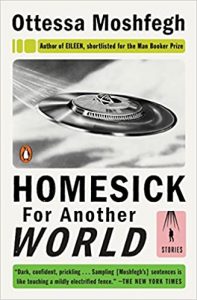



Below are a number of questions, in no particular order, that we’ll be considering throughout the semester. Attempting to answer them as you read — or to at least bear them in mind — will give you a sense of the complexity and nuance of first-person point of view and the variety of ways that first-person narrators reveal themselves to the reader even if their attention appears to be focused on what happens in the story. Considering these questions about your own stories, your own narrators, will help you craft more complex and convincing characters.
What has set the narrative in motion? What has caused this person to say, implicitly or explicitly, “I have a story to tell” or “This is what happened to me”?
♥
Is the narrator speaking? Writing? Thinking? Does the narrator suggest — or seem to imagine — an audience? If so, who?
♥
What is the narrator’s perspective on the events that take place in the story? Are those events recent or long ago? At what point do we discover the narrator’s perspective? At the story’s opening? At its conclusion? Somewhere else?
♥
What does the narrator believe the story is about? Who does the narrator believe the story is about? Does the story suggest the narrator is mistaken? How? Why?
♥
What might the narrator not know or misunderstand about herself? About others? About her own or others’ past or present behavior, motivations, affections?
♥
How would you describe the nature of the narrator’s presentation? Is it a reflection? A confession? An explanation? A revelation? A self-defense?
♥
How would you describe the tone of the narrator’s presentation? Wistful? Angry? Nostalgic? Tender? Inquisitive?
♥
Does the narrator change over the course of the story? Does the narrator change through the act of telling the story?
♥
In what way is telling the story a meaningful act for the narrator?